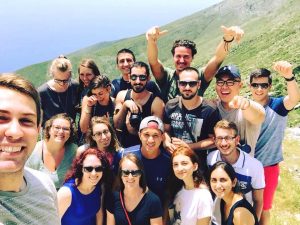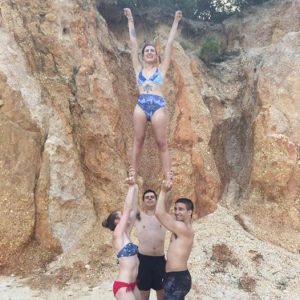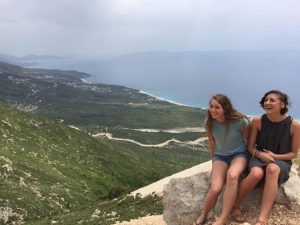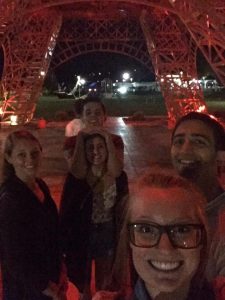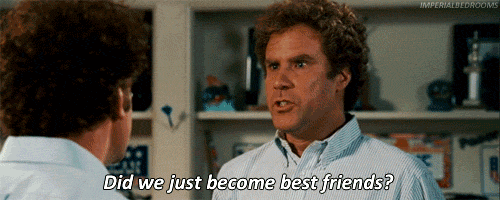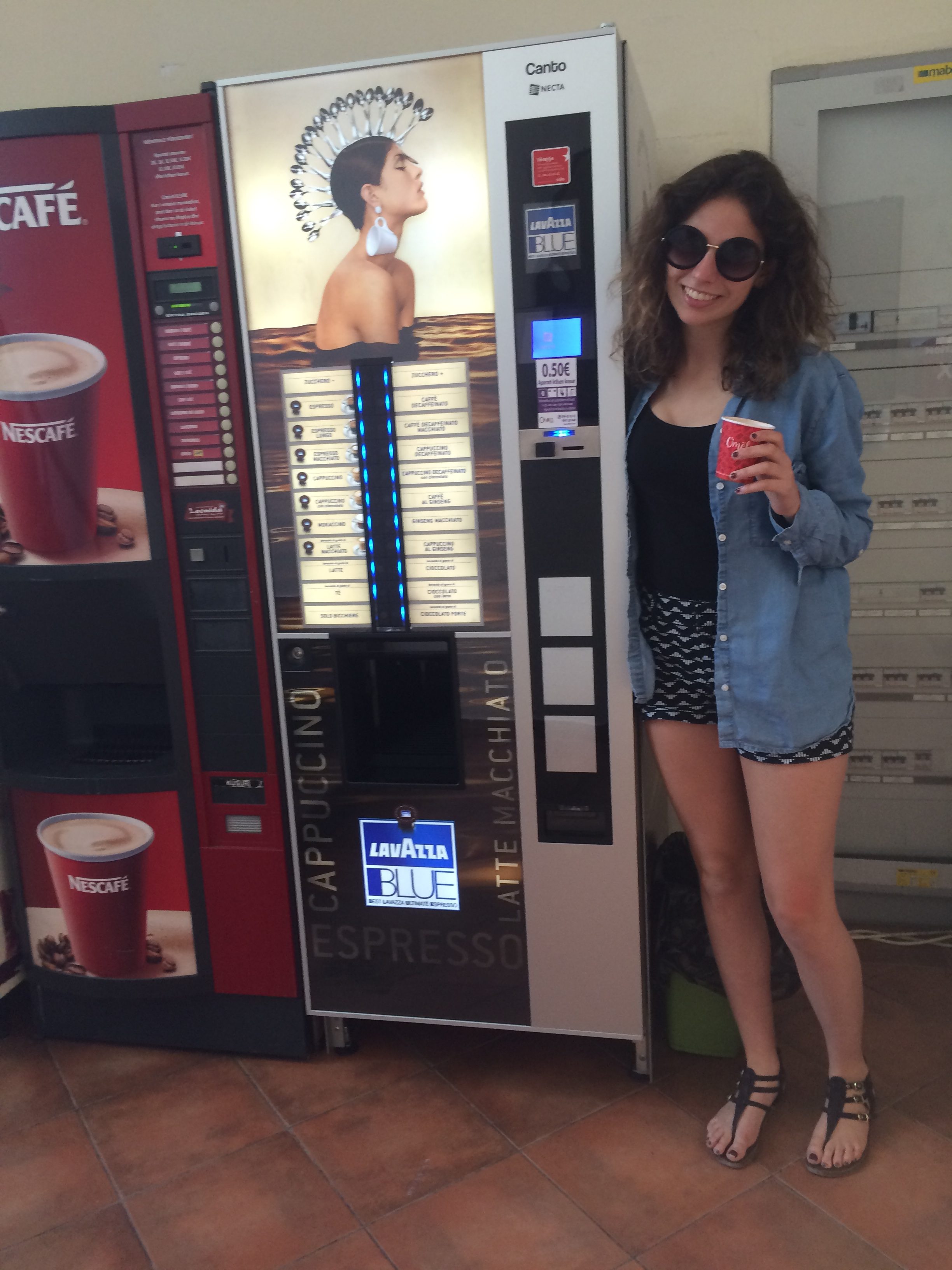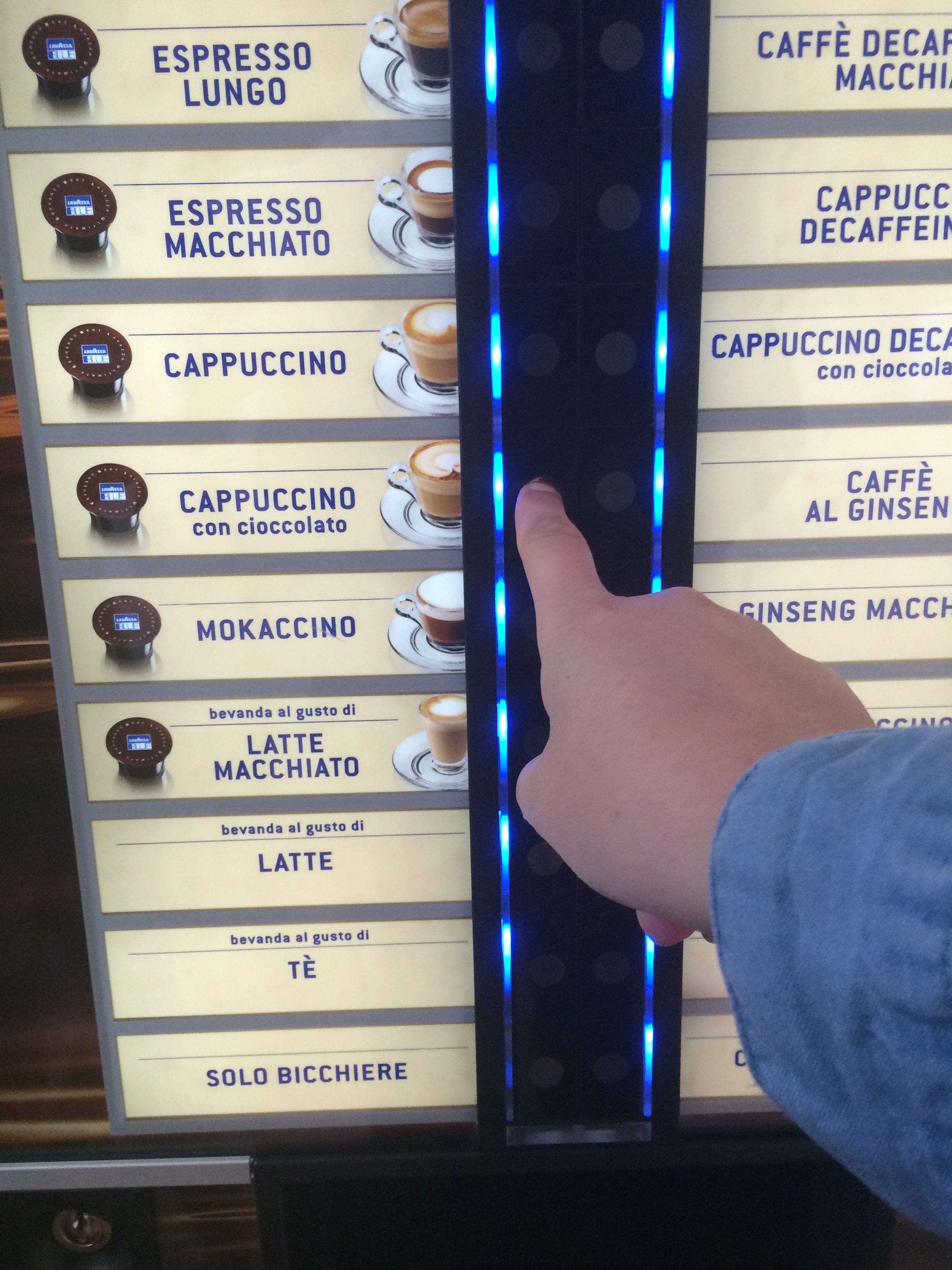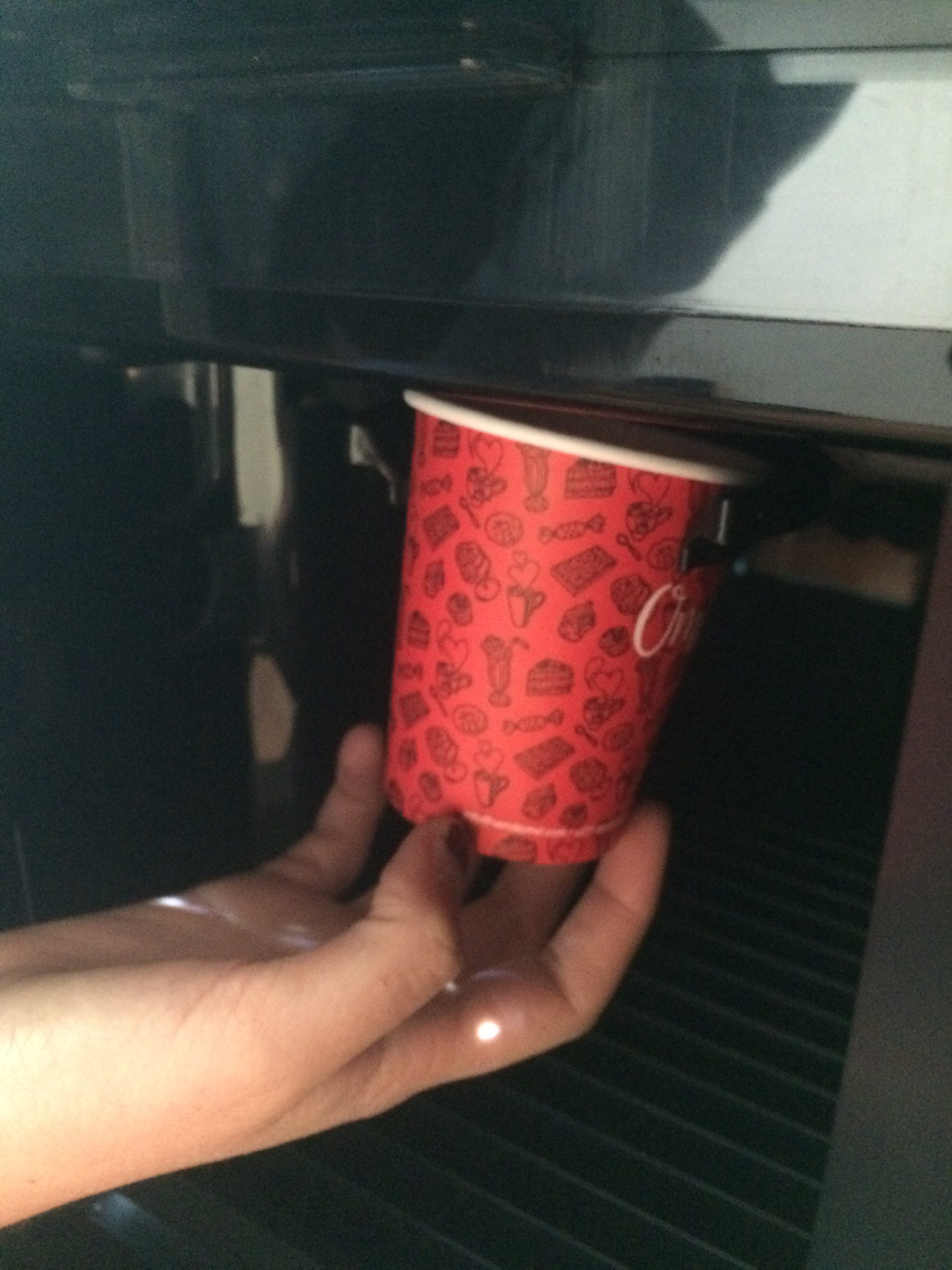In my next few blog posts, I’m going to pull entries from my personal journal. It’s interesting to look back and see the evolution of our stay. While I came here for this documentary course, a big motive in my venture to Prishtina came in the form of an internship with a local news publication. Looking back, I can’t believe that I wrote these entries 4-weeks ago, following my first 2 days of work.
June 27th
It’s nice to be back in Prishtina, and this time for good.
With the exception of weekend trips to Bosnia to pursue a project that I can’t seem to let go, Prishtina will be my base for the next 4 weeks.
So in my return to Prishtina I feel the same comfort as one does when they return home after a long time away.
At 7:30 a.m. I head down to breakfast. “Class” starts at 8, so I am cutting it close.
I put “class” in parenthesis because while I am taking a class, I’m not actually enrolled for credit. But the university is there, and the professors are some of the most knowledgeable when it comes to the history of the Balkans and the fall of Yugoslavia, having been there in active roles with the UN during the war. I’m in the process of applying for a Fulbright to Kosovo, and they have an insider’s knowledge on conflict and resolution that I’d be foolish to pass up.
To give you a better idea of the people I am working with, my professor’s bio reads the following:
“A retired Foreign Service Officer, Louis Sell, worked for 28 years with the U.S. Department of State, including eight years each in Yugoslavia and the former Soviet Union and Russia.
He served as US representative to the Joint Consultative Group in Vienna, as Director of the Office of Russian and Eurasian Analysis, and as Executive Secretary of the US delegation to the Strategic Arms Reduction Talks.
From 1995 – 1996 he served as political deputy to Carl Bildt, the first High Representative for Bosnian Peace Implementation. In that capacity he attended the Dayton Peace Conference and participated in the first year of implementation of the Dayton accords.”
So yeah, I’m dealing with big shots…
An hour into class, I excuse myself and walk down the stairs to find a cab that will bring me to my internship – the driving motivator behind my stay in Prishtina.
Background: While I supposedly have an internship set-up with Prishtina Insight, I’m going in entirely blind. I don’t know what my responsibilities will entail – If I will have responsibilities at all. I don’t know what my hours will be, or what days of the week I’ll be invited to stay. I don’t know if I’ll be of use to them, or if they will offer the coveted experience that I’ve been seeking. I don’t even have an address. I’m going in blind. That’s part of the fun!… or at least that’s what I’m choosing to tell myself!
So there I am, in the back of a cab, speaking English at a driver who doesn’t understand (Damn American). I have 30 minutes – 25 now – to get to an office to which I have never been, and all I have is blurry screenshot of a pin on a map that I took from the Prishtina Insight Facebook page.
This is going to be interesting.
I show the driver the picture, he looks at it for a few minutes, shrugs his shoulders, flashes me a “Ha, sorry in advanced” smile, and begins to drive.
Now do keep in mind, that I have been in Prishtina for only a day prior to this little adventure, and have absolutely zero grasp of my surroundings. It’s the blind leading the blind.
After driving for approximately 12 minutes, the cab driver parks in what looks to be a taxi depot of sorts, looks at me, looks at the map, looks back at me, and gives me my bill.
I get out, as it seems like the best option at this point, and begin to walk.
For all I know, I could be walking in the direction of the Serbian border, but I’m walking and that appears to be the most productive course of action I can take in the moment.
Eventually I end up on a main street, with a steady flow of traffic and people.
Right.
First things first, find a friendly face.
Good.
Now find a friendly face that speaks English.
For a reason I cannot explain, I select a copy shop out of the endless rows of restaurants and boutiques. I go in, give the man at the desk a big ole friendly “I’m trying not to be a tourist but I’m lost and inept and would really appreciate your guidance” smile, and get out my blurry map photo.
“English?”
“No, no.”
“Cheers” J
So I’m back on the street, scanning the sidewalk for my next target, when I see a woman in a tight white pantsuit. She points vaguely in the direction that I’ve been headed this whole time, and I continue forward.
Now I feel an obligation to clarify something – many Kosovars speak English, and they speak it very well. But it’s always in the moment of need that one struggles to find what they’re looking for.
I approach a man wearing a backpack, a student I presume, and ALAS – HE KNOWS!
At least he thinks that he knows… and that’s better than nothing.
“Follow me!” he exclaims, and that I do.
I climb a series of steps and by the good grace of god, there it is, the BIRN sign – Balkans Investigative Reporting Network.
I’m not sure how, but I had arrived, and not a minute late.
The office was nice, a narrowed walkway lead back to an open room decked out in chairs and tables and the color red. On the tables were computers, and at the computers writers and editors, presumably, were at work.
I was quickly greeted by Lura, an editor for Insight, and my point of contact. She gave me a run-through of the office and my responsibilities, and then asked about my interests.
I similarly was introduced to Faith, a new editor on the team, who I later learned was originally from West Virginia.
Who would have thought that after my two-year search for another West Virginian while at school to New York would return an utter absence of result, but in my first week in Prishtina, I’d run into one. And working from the same newsroom as I, nonetheless!
So far, so good!
When lunchtime came, Lura, Faith, and I went to a lovely little café down the street, where we all chose to have open-faced sandwiches.
At lunch, I mentioned that I was in the process of applying to Kosovo for a Fulbright, and in another very strange coincidence, learned that Faith had done one just a year earlier.
When we got back to the office, I was given my first assignment – covering a public discussion that was being held “to examine [the] challenges Kosovo faces in its European Integration path, how should EU member states be approached to address these challenges and what civil society [could] do to increase the dialogue with EU member states more effectively.”
Pretty intimidating stuff, for somebody who was not yet acclimated, but I was thrilled to have something to do.
So I got to work doing my background research, said my ‘thank yous’, and headed home.
June 28th
A baptism by fire.
That’s what my mom called it.
At 7:15 a.m. I wandered down to the hotel lobby, and asked for a cab to be called for 9:30. The roundtable discussion began at 10, and according to my maps, the hotel that it was being held at was just 7 minutes away.
I had gone to class again in the morning and excused myself early to head down to the parking lot where my cab would be waiting… or at least was supposed to be waiting.
But it wasn’t.
I waited 5 minutes, and then 5 more, and at 9:40 I decided to walk back to the hotel to ask if they could call again.
It was 9:43 and I was in a bit of a panic, when the man at reception informed me that the cab had come and had gone.
Because in a misunderstanding, he had asked for it to come 2 hours earlier.
This is for this very reason that it is important to leave yourself a buffer. An inflatable lifejacket of extra time.
The cab arrived at 9:47, and precisely 7 minutes later (well done, google maps), we arrived at the Swiss Diamond Hotel.
And it was FANCY.
The inside looked like a palace of sorts. Gold plated EVERYTHING. Marble floors. Chandeliers, and men and women dressed in crisp black suits to point me in the direction of Marec Hall and sneak me the Wi-Fi code.
I entered to a room of men and women, from their late-20s to their mid-60s. The too were dressed remarkably well, in dresses and heels, and other classy attire.
I thanked my lucky stars that I chose my fancy blouse to pair with my American Eagle jeans and sandles – at least I only out of place from the waist down.
Now before I continue on, I need to remind you that this was my first assignment, not only with Prishtina Insight, but EVER.
My first time on assignment for a publication. My first time covering a public discussion. My first time writing on any form of political affairs let alone Kosovo specific political affairs.
And there I was, in a fancy hotel, amongst fancy people who all looked as though they were more comfortable in this setting than they could be in their own homes.
Eyes-wide, heart fluttering, I scooped my jaw up from the floor and did the only thing that I could – faked the hell out of it.
I marched straight into the conference room where a U-shaped chair and table set-up was, and sat myself down. At each spot on the table, there was a microphone, a headset, a wine glass and bottle of water, and a note pad.
At the bottom of the U, sat 3 key figures:
- The Dutch ambassador to Kosovo, and the current Presidency to the Council of the EU – Gerrie Willems
- The Liason office of the Slovak Republic in Pristina, and the soon to be Presidency to the Council of the EU – Ľubomír Batáry
- The Deputy Minister of European Integration – Ramadan Ilazi
Right.
As the seats filled in and the wheels began to turn, I turned to the woman seated beside me, and asked the question of the hour: “Is this in English?”
She pointed to the headset sitting in front of me. Ah…
I stared at it intently, put the headphones to my ears, and turned a series of nobs until I picked up a feed of translation.
And from there the ball was rolling.
I listened intently as the discussion shaped into a dialogue with a focus on Brexit and the implications for Kosovo’s integration, concerns about the upcoming Slovak presidency, and reasons that these concerns were illegitimate.
I took notes frantically at first, but soon settled into a rhythm.
By the closing of the discussion I had the adrenaline of skydiver running through my veins.
No seriously. It took all the control I could muster to not explode into a series of mini sprints.
It was invigorating.
I got back to the newsroom, wrote my first story, and left at the end of the day cool as a cucumber.
I smiled the goofiest of smiles my entire walk home.
